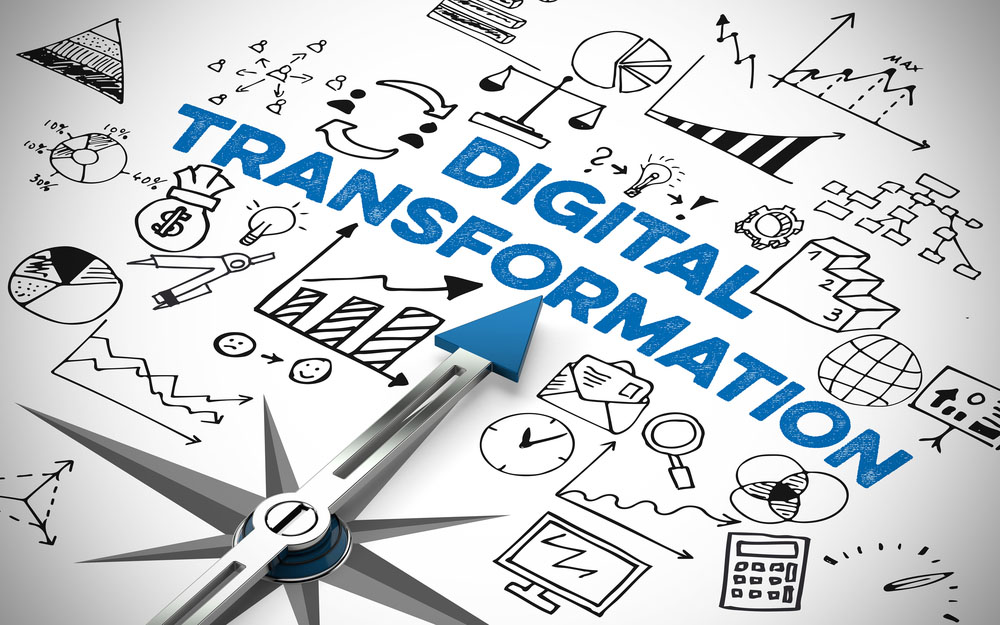The fast-moving consumer goods (FMCG) market is highly competitive with digital technologies reshaping consumer demand, changing how people shop, how they decide what to buy and how they even receive their goods and parcels. While businesses in this sector are often the early adopters of innovation as they need to stay ahead, remain competitive, and look to cut their bottom line, the industry still faces challenges with digital transformation. In particular, FMCG businesses are daunted by lead times and delays as well as the cost for IT and business departments (who are not always aligned) to deliver on their digital transformation strategies.
A recent survey undertaken by PwC, CEO Viewpoint 2017: The Transformation of Retail, found that while digital transformation is viewed by many FMCG companies as critical, their strategy, planning and implementation is much slower than desired. The survey found the three biggest barriers to digital transformation were the IT team’s ability to deliver on the strategy (69 per cent), a lack of leadership to define a digital transformation strategy (67 per cent) and a lack of the pre-requisite skills to execute on the strategy (64 per cent).
So how can FMCG companies overcome these barriers?
1. Break down the silos
A key initiative that should be employed across large FMCG organisations is a policy to break down the silos that exist between different departments. That’s because the structure of many organisational silos often seems to work against the interests of customers. Crucial to success is staying close to the customer of your product or service and learning how you are missing, meeting or exceeding their expectations. To do this, organisations must bring people together so they begin to understand the inter-dependencies between departments and the impact it has on customers and how they can better work together in order to deliver a quality service.
2. Find the right digital transformation partner
Innovative companies like Coke and Nestle are leading the way with impressive cross-platform digital campaigns, committing serious spend to their various digital channels. But very few organisations can do this on their own. Companies should therefore seek help to meet the complex and constantly changing digital landscape by finding the right partner to help ensure their transformation journey meets the needs of their business. Often organisations simply don’t have the expertise or the resources to commit to the programme and it stalls before it has even started. An external partner can help to accelerate the time it takes to not only get these projects off the ground but also make sure that they are executed efficiently.
3. Look to adopt a mobile-first approach
The best aspect about the mobile channel is that it gives brands the potential to engage with their customers or their internal departments in real-time, processing data and improving business practices and communication as and when it happens. Therefore companies should ensure that any digital programme has mobile as a central part of the initiative.
As more and more organisations are looking to deliver their digital transformation initiatives so they are also now utilising low code platforms in order to do this quickly and easily. Low code enables them to not only develop with speed but they can also make changes just as quickly. This means that they can adopt an iterative approach to development, getting end-user feedback and then tweaking and changing the solution in line with that feedback.
At OutSystems we have a strong history and enviable track record of working with FMCG businesses such as Safeway, Bacardi, and Jeronimo Martins to name but a few. One company in particular who successfully implemented a digital initiative last year was FTSE 250 listed Total Produce. Total Produce is the largest fruit and vegetable producer in Europe and the fourth largest worldwide. Last year it won a large UK government-funded contract, Fruit4Schools, to provide fruit to every child attending UK state primary schools. In order to do this efficiently it needed an application that would capture an electronic signature of delivery. Total Produce partnered with OutSystems to implement this application. Not only was the new app developed rapidly but using OutSystems Total Produce found that it didn’t need to hire any more developers to deliver the project. The solution has been rolled out across 25 drivers servicing the UK schools and now Total Produce is looking at further digital deployments across other parts of the business in the UK, Ireland and other locations.
The value in embracing digital technology for business transformation is clear. Successful transformation however is much harder to achieve especially as demands constantly evolve. As organisations look to put digital at the heart of the business this often also requires significant cultural change. This type of cultural and technological shift for some traditional FMCG brands may seem a large undertaking, but in today’s digital age, it is the difference between staying competitive in an ever-evolving landscape or the risk of disappearing all together.




